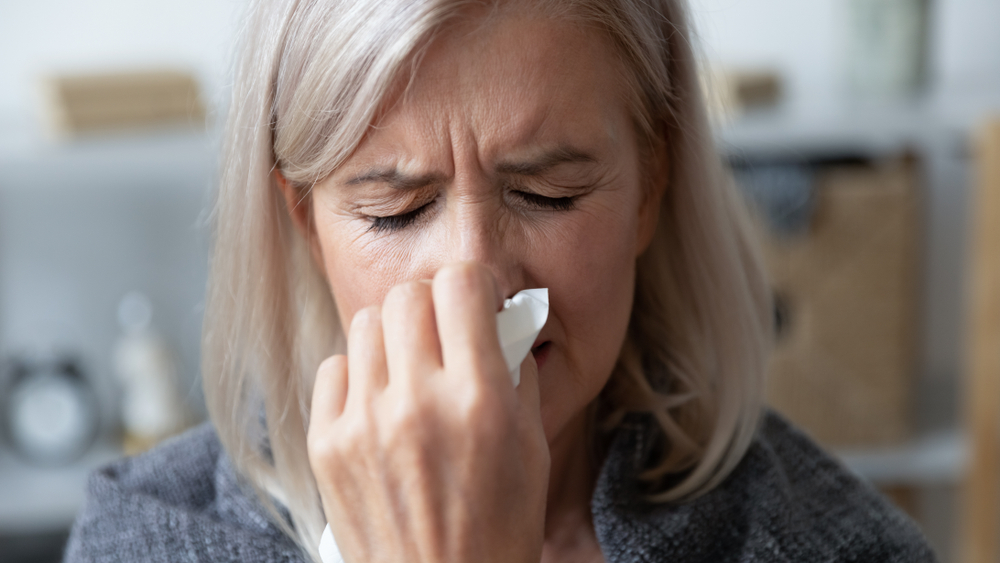If you feel like your seasonal allergies are getting more intense with each passing year, you are not imagining it. As you find yourself reaching for tissues earlier and for longer, you might be asking, “Are allergies worse this year, 2025?” The answer, according to experts, is a definitive yes. Several environmental factors are converging to amplify pollen production and extend allergy seasons, making this year particularly challenging for allergy sufferers. Understanding the key seasonal allergy trends in 2025 can help you prepare and seek the right kind of relief. At Doral Health & Wellness, we have all the answers you need.
Key Seasonal Allergy Trends in 2025
The primary driver behind the shift in seasonal allergies is our changing climate. Warmer temperatures and increased carbon dioxide levels are creating a perfect storm for pollen-producing plants. Here’s a breakdown of what immunologists are seeing this year.
- The Allergy Season is Starting Earlier and Lasting Longer
One of the most noticeable trends is the extension of the pollen season.
- “Pollen Priming”: Warmer winters are causing trees to pollinate earlier than ever. This means that tree pollen, which typically kicks off the spring allergy season in March or April, may now start appearing as early as February in many regions.
- Extended Fall Season: Similarly, a later first frost in the autumn allows weeds like ragweed to thrive and release pollen well into October and even November.
- The Result: What used to be distinct allergy seasons (spring, summer, and fall) are now starting to blur together, creating a longer, more continuous period of exposure for many people.
- Pollen Counts are Higher and More Potent
It’s not just about timing; the pollen itself is becoming more aggressive.
- Supercharged Pollen: Increased levels of CO2 in the atmosphere act like fertilizer for plants, causing them to grow larger and produce significantly more pollen.
- Increased Potency: Studies suggest that this “supercharged” pollen may also be more allergenic, meaning each grain has the potential to provoke a stronger reaction in sensitive individuals. This directly answers the question, “Are allergies worse this year, 2025?”—the pollen is literally more powerful.
- “Thunderstorm Asthma” and Air Pollution
The interaction between pollen and weather events is creating new challenges.
- Pollen and Pollution: Air pollutants like ozone and nitrogen dioxide can interact with pollen grains, making them more irritating to the respiratory system. This combination can worsen allergies and asthma symptoms, especially in urban areas.
- Thunderstorm Asthma: This phenomenon occurs when a thunderstorm’s high humidity and strong winds rupture pollen grains into smaller, more easily inhalable particles. These particles can travel deeper into the lungs, triggering severe asthma attacks even in people who have never had asthma before.
What Can You Do to Manage Worsening Allergies?
With these challenging seasonal allergy trends in 2025, a proactive approach is essential for managing your symptoms effectively.
- Track Pollen Counts: Use local weather apps or websites to monitor daily pollen forecasts. On high-pollen days, try to stay indoors as much as possible, especially during peak hours (mid-morning to early afternoon).
- Keep Windows Closed: Use air conditioning in your home and car to filter out pollen.
- Wash Up: After spending time outside, change your clothes and shower to rinse pollen from your skin and hair.
- Start Medications Early: An allergist will often advise you to start taking your allergy medication two to three weeks before your typical allergy season begins. This helps prevent the inflammatory process before it gets out of control.
When It’s Time to See a Specialist
If over-the-counter medications and avoidance strategies are no longer providing adequate relief, it’s time to seek professional help. Constant sneezing, a runny nose, and itchy eyes can significantly impact your quality of life, affecting sleep, work, and daily activities.
A board-certified allergist at a specialized immunology center can provide a precise diagnosis and a more powerful treatment plan.
- Accurate Testing: Through skin or blood tests, a specialist can identify exactly which pollen is triggering your symptoms.
- Prescription Medications: Your doctor may prescribe stronger nasal sprays, antihistamines, or other medications tailored to your specific needs.
- Immunotherapy: For long-term relief, your doctor might recommend immunotherapy (allergy shots or under-the-tongue tablets). This treatment involves exposing you to tiny amounts of the allergen over time to desensitize your immune system, reducing or even eliminating your allergic response.
The evidence is clear: allergies in 2025 are different. They are more intense, last longer, and are driven by significant environmental changes. Instead of just enduring another miserable season, take control by understanding these trends and seeking expert medical advice. A visit to an immunology center can provide you with the tools and treatments needed to breathe easier and enjoy your life, regardless of the pollen count. Call us on + 1-718-367-2555 to book your appointment now to receive best-in-class treatment that helps prevent or manage your allergies for a better life. Take action now, before it’s too late! If you need help, register your information at https://yuz88hfiyh7.typeform.com/Doralintake. Or visit us at 1797 Pitkin Avenue, Brooklyn, NY 11212.






